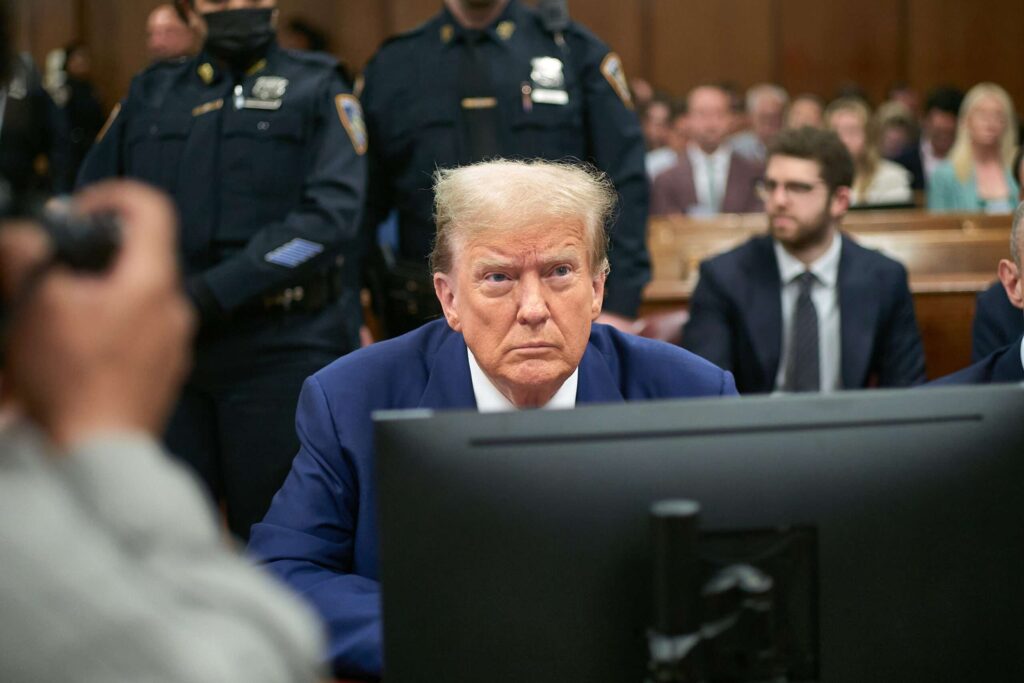Porn star Stormy Daniels says she had sex with Donald Trump at a Lake Tahoe hotel in July 2006. Michael Cohen said that in order to prevent her from telling the story, the “boss” directed him to pay Daniels $130,000 shortly before the 2016 presidential election.
Manhattan District Attorney Alvin Bragg said nondisclosure agreements are a serious crime that undermine democracy by withholding information from voters. Of the three claims, Bragg’s is the least credible.
Chief Prosecutor Matthew Colangelo said at the outset: “This was a planned, coordinated, long-term conspiracy to influence the 2016 election and help elect Donald Trump through illegal spending. Silence those who have bad things to say about his actions. “This is pure election fraud. “
Contrary to Colangelo’s assertion, the case against Trump is not “pure and simple.”First, Trump is no Accused of “conspiracy” or “election fraud”. He was accused of violating New York law prohibiting “falsification of business records” and “intent to defraud.”
Trump allegedly did so 34 times, reimbursing Cohen’s 2017 payment to Daniels as compensation for legal services. The count includes 11 invoices issued by Cohen, 11 corresponding checks and 12 ledger entries.
Falsifying business records is usually a misdemeanor, but it becomes a felony when the defendant’s “defrauding intent” includes an intent to conceal “another crime.” Bragg said Trump had such intentions.
What crime is Trump allegedly trying to hide? Prosecutors said that violated an arcane New York law that makes it a misdemeanor for “two or more persons” to conspire by unlawful means to promote or prevent the election of any person to public office.
Why was Daniels’ payment “illegal”? Federal prosecutors argued in 2018 that Cohen made excessive campaign contributions by paying the money.
Cohen accepted that description in a 2018 plea agreement that also resolved several other unrelated charges against him. But Trump has never been sued for soliciting “donations,” and for good reason.
The scenario hinges on the assumption that Trump was trying to promote his election when bribing Daniels, rather than trying to avoid embarrassment. While the first explanation seems plausible, proving it beyond a reasonable doubt is difficult, as demonstrated by the failed prosecution of Democratic presidential candidate John Edwards in 2012, which was based on a similar but seemingly seems to be a stronger fact.
Federal prosecutors must prove that Trump “knowingly and willfully” violated federal campaign laws. But given the blurred line between personal and campaign expenses, Trump doesn’t seem to think it’s illegal to pay Daniels for her silence.
Regardless, the Justice Department did not pursue the case, the statute of limitations now bars pursuit, and Bragg lacks the authority to enforce federal campaign finance regulations. Instead, he is relying on a moribund New York election law that experts say has never been enforced before.
This attempt to turn federal campaign finance violations into state felonies was so legally dubious that Bragg’s predecessor, Cyrus R. Vance Jr., rejected the idea after long consideration . It reeks of political despair and confirms Trump’s complaint that Democrats are trying to “meddle in the election” by sabotaging his current presidential campaign.
As Bragg put it, Trump was the one who “interfered with the election,” which the district attorney described as “the centerpiece of the case.” Bragg said his prosecutors “alleged falsification of business records in order to alienate voters from information.”
The defense team accurately described Cohen as a convicted felon who admitted to harboring a grudge against his former boss.since they were produced back As far as the election is concerned, Bragg’s account is both ridiculous and irrelevant — something that shouldn’t be overshadowed by the salacious details of Daniels’ story.
© Copyright 2024 Creators Syndicate Inc.

